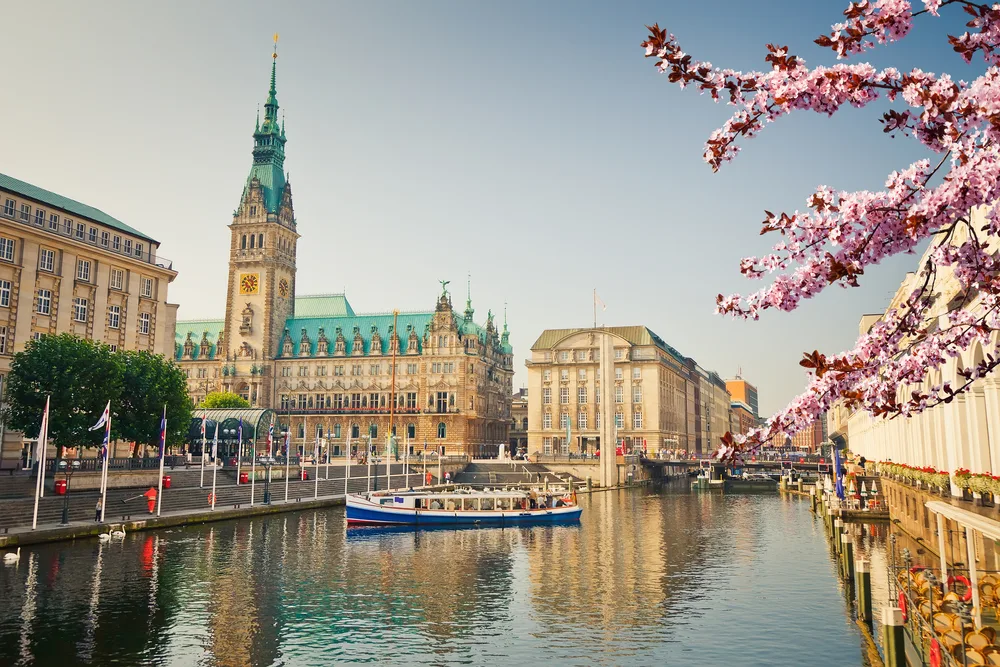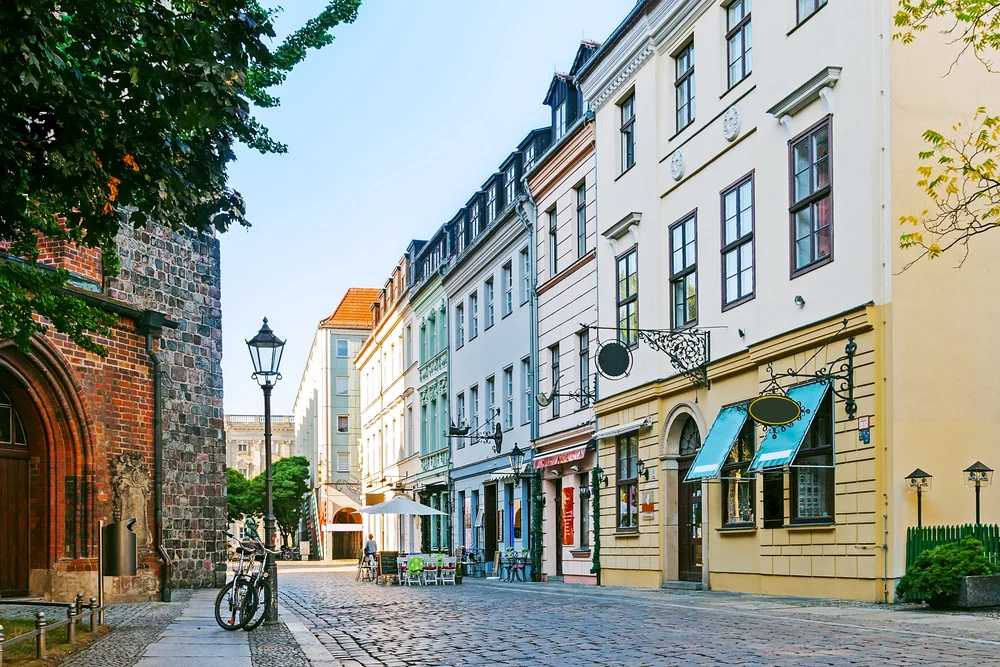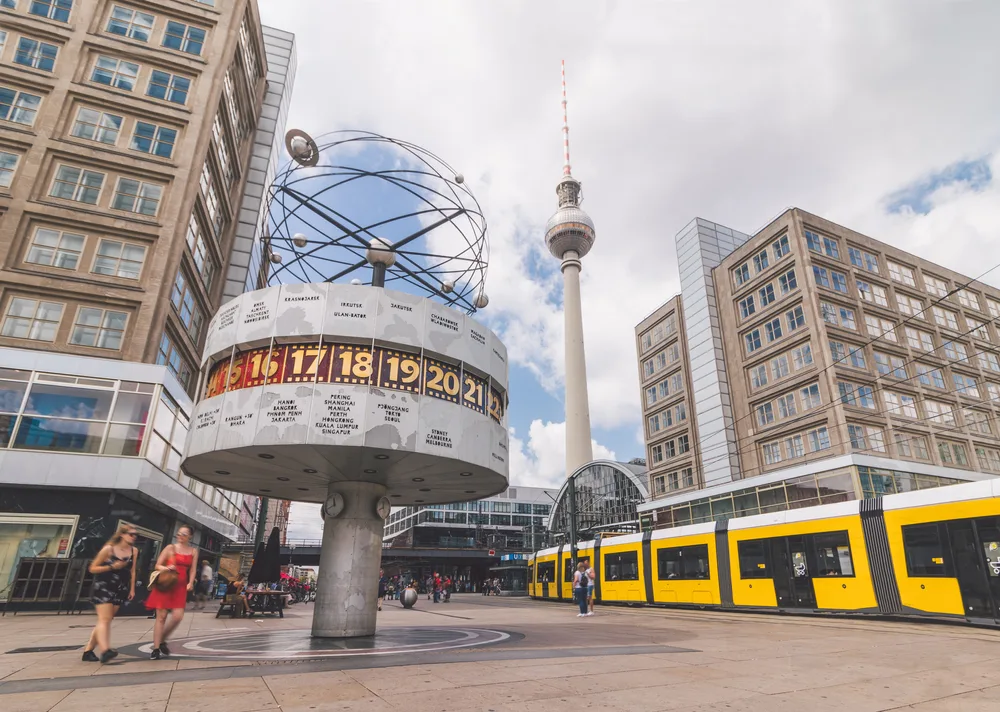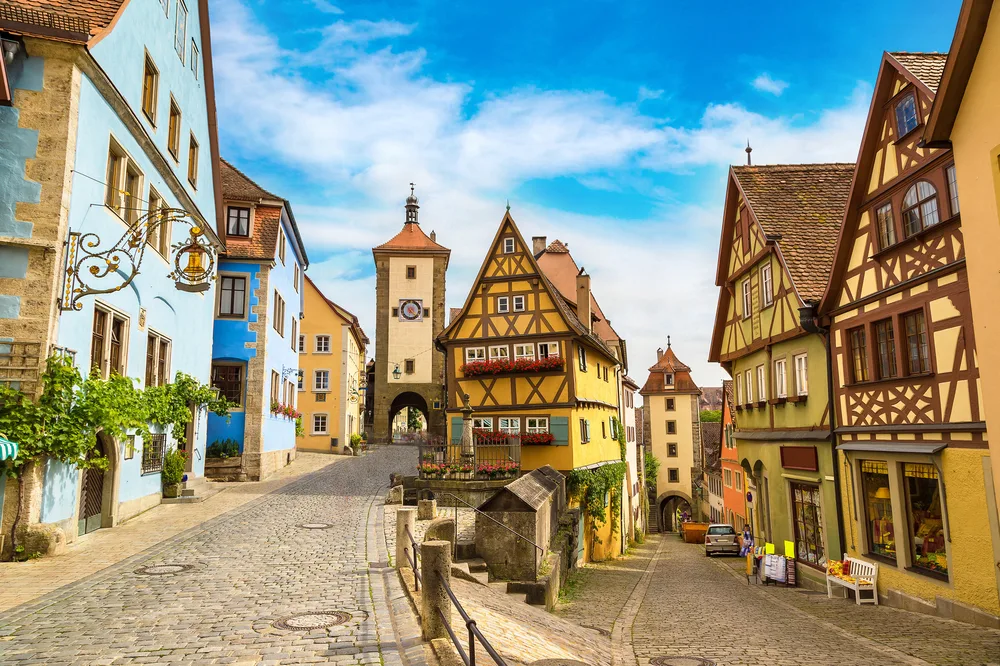Is Germany Safe to Visit?

S.Borisov/Shutterstock
Yes, Germany is a very safe country to visit. While some countries have travel advisories in place for their citizens due to the threat of terrorism, the probability that such an incident will occur while you are in the country is very low.
Instead, most problems tourists encounter are more mundane, such as petty theft and scams. The biggest problem most countries caution their citizens against when visiting Germany is terrorism.

The Australian government tells its citizens to exercise a high degree of caution while in Germany, primarily due to terrorism. The United States State Department also places Germany under a Level 2 travel advisory due to terrorism.
Countries have to warn their citizens about the possibility of terrorism because they want to cover all of their bases in these warnings. However, the number of terrorist incidents that occur in Germany each decade is very low.
In fact, Germany is one of the safest countries in the world, coming in at number 16 on the 2022 Global Peace Index.
Ironically that makes it safer than most of the countries issuing travel advisories for its citizens — Australia is at number 27, while the United States is at a lowly number 129, behind Egypt and Azerbaijan.
Although most international travel advisories focus on the threat of terrorism, petty crime is a more likely danger for tourists visiting Germany.
Popular tourist destinations here attract bag snatchers and pickpockets, just like any other crowded place in the world. German cities are like any big cities in that violent crime does happen, and certain areas are not safe, especially after dark.
To recap, the primary concerns for visitors to Germany are:
- Terrorism
- Hate crimes
- Petty theft
- Assault
All that being said, the crime rate in Germany is very low, especially compared to countries such as the United States. The vast majority of tourists visiting Germany come away with only positive memories.
Crime in Germany

Pani Garmyder/Shutterstock
Looking at crime statistics for Germany will probably put any fears you have about visiting the country to rest. The crime rate in Germany is very low.
As of 2020, the homicide rate is 0.93 incidents per 100,000 people. Most homicides are targeted or part of organized crime turf wars, so as a random tourist, you won’t be in danger of homicide unless you really happen to be in the wrong place at the wrong time.
The overall crime rate, not just the violent crime rate, is very low in Germany. According to Statista, the incidence of crimes is just 6.07 incidents per 100,000 people.
The most common crime in Germany is petty theft, including pickpocketing, scams, and minor fraud. These crimes are not violent but crimes of opportunity, where criminals take advantage of people’s distractions to carry out their crimes.
Other forms of minor crime, such as vehicle vandalism and vehicle fires, are also common, especially in sketchier areas of Berlin and Hamburg. Violent crime in Germany mostly consists of aggravated assault or armed robbery.
These incidents rarely affect foreigners, but tourists sometimes get mugged at knifepoint around train stations or in sketchy areas after dark.
Kidnapping, rape, and murder directed against foreigners are very rare. Sexual assault sometimes happens, and criminals sometimes use date rape drugs to incapacitate women.
Petty Crime and Pickpocketing

The most common crime you might encounter in Germany is petty theft. This includes pickpocketing, bag snatching, and scams.
Germany doesn’t have a very high rate of pickpocketing, but it still pays to pay attention when you’re out in public as you don’t want to have to deal with the frustrating process of reporting a crime or replacing stolen property while on vacation.
According to the Canadian government advisory, pickpockets often operate in organized groups. They target crowded places such as train stations, tourist attractions, public transportation routes, and Christmas markets.
Beware of people brushing up against you when it isn’t that crowded and of people trying to distract you. Hotspots for pickpocketing are usually the areas around the major train stations, such as the Hasenbergal district in Munich or Frankfurt’s red light district.
Pickpockets mostly operate in major cities such as Berlin and Hamburg, but you shouldn’t leave your stuff unattended wherever you are.
Even cafes and restaurants can be dangerous as people will snatch wallets left out on the table or bags hanging off the back of chairs. Scams in Germany are not that prevalent, but they are common.
The Berlin public transportation system is a hotspot for scammers. Beware of people offering to sell you cheaper, already validated train tickets on the platform as well as people posing as railway inspectors.

The best way to protect yourself from these scams is to always have a validated ticket of your own with you. Credit card fraud and ATM fraud also occur sometimes.
To stay on the safe side, always use ATMs located inside banks or in other safe areas. Check for signs that an ATM has a card skimmer, such as glue residue or anything that could hide a hidden camera.
Terrorism
The primary crime most foreign governments include in their advisories for Germany is terrorism. For example, the United Kingdom tells its citizens that “terrorists are highly likely to carry out attacks in Germany.”
It gives a list of recent high-profile attacks, including a 2020 knife attack in Dresden, a 2020 mass shooting in Hanau targeting local immigrant communities and Muslims, and a 2016 lorry attack on a Berlin Christmas market.
According to the Global Terrorism Index, the current risk of terrorism is 4.73 out of 10. That means there is a moderate risk of terrorism while in Germany.
Terrorist attacks rarely claim lots of lives in Germany due to the methods used, but it’s better not to get caught in an attack anyway. Most reporting on terrorism focuses on Islamic terrorism, which is one of the main threats throughout Western Europe.
However, Germany also has a massive problem with organized far-right terrorist groups, some of which succeeded in infiltrating high levels of the government, police, and armed forces.
The German interior minister said in 2019 that right-wing extremism is the biggest threat to German security. These groups were behind terrorist attacks, such as the one in Hanau. They often target immigrants, Muslims, and Jewish people in Germany.
This is especially concerning considering Germany’s history of Nazism. The likelihood that you’ll be in Germany while a terrorist attack happens, let alone that you will be one of the victims, is fairly low, although the risk always exists, particularly in crowded places.
To put your mind at rest, you can check news reports for alert levels. The German government is taking many steps to combat terrorism, including ramping up security at popular tourist destinations and crowded places.
There is not much you can do to protect yourself from terrorism, as this is, by definition, a random form of violence. If you are really nervous, avoid Christmas markets and sporting events as the crowds there make a tempting target for terrorists.
Be aware of your surroundings, and if you see someone acting suspiciously, leave first, and ask questions later. If an incident does happen, follow the advice of local authorities to stay safe.
Avoiding Bad Areas
uslatar/Shutterstock
Germany is mostly a safe country. However, there are a few places where crime rates are higher, and you should be careful of walking in them, particularly at night.
Big cities all over the world have sketchier neighborhoods, and Germany’s cities are no different. In Berlin, areas such as Luisenstadt, Wrangelkiez, and Oranienplatz have high crime rates.
At night, Alexanderplatz and Kreuzberg get sketchy, with high rates of petty crime, drug and alcohol consumption, and even some soliciting. Other cities in Germany have their own sketchy areas.
In Hamburg, avoid Wandsbek, Harburg, and Wilhelmsburg, although the latter is getting better in recent years. Bremen has the second-highest crime rate in Germany, especially concentrated in Viertel side streets.
In Frankfurt, the area around the main train station is considered a red-light district, with crimes such as prostitution, drug abuse, and theft very common.
There are certain parts of Germany where there is a higher risk of far-right violence. Hate crimes against ethnic minorities are more common in parts that used to be eastern Germany, such as Dresden.
Far-right terrorists are even active in Berlin, especially in the seemingly quiet area of Neukolln. If you are a person of color or LGBT, you should avoid those areas, especially if traveling alone and after dark.
Source: https://t24hs.com








